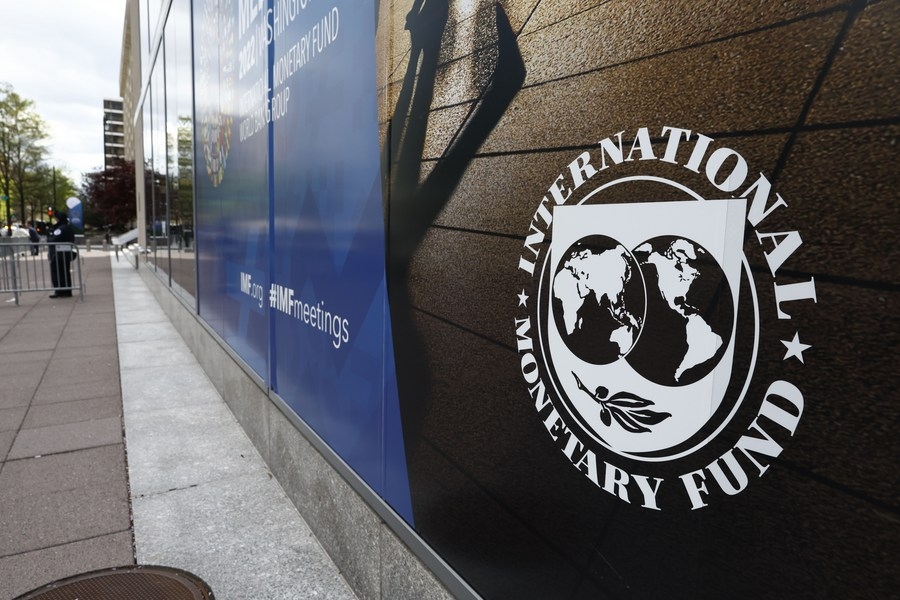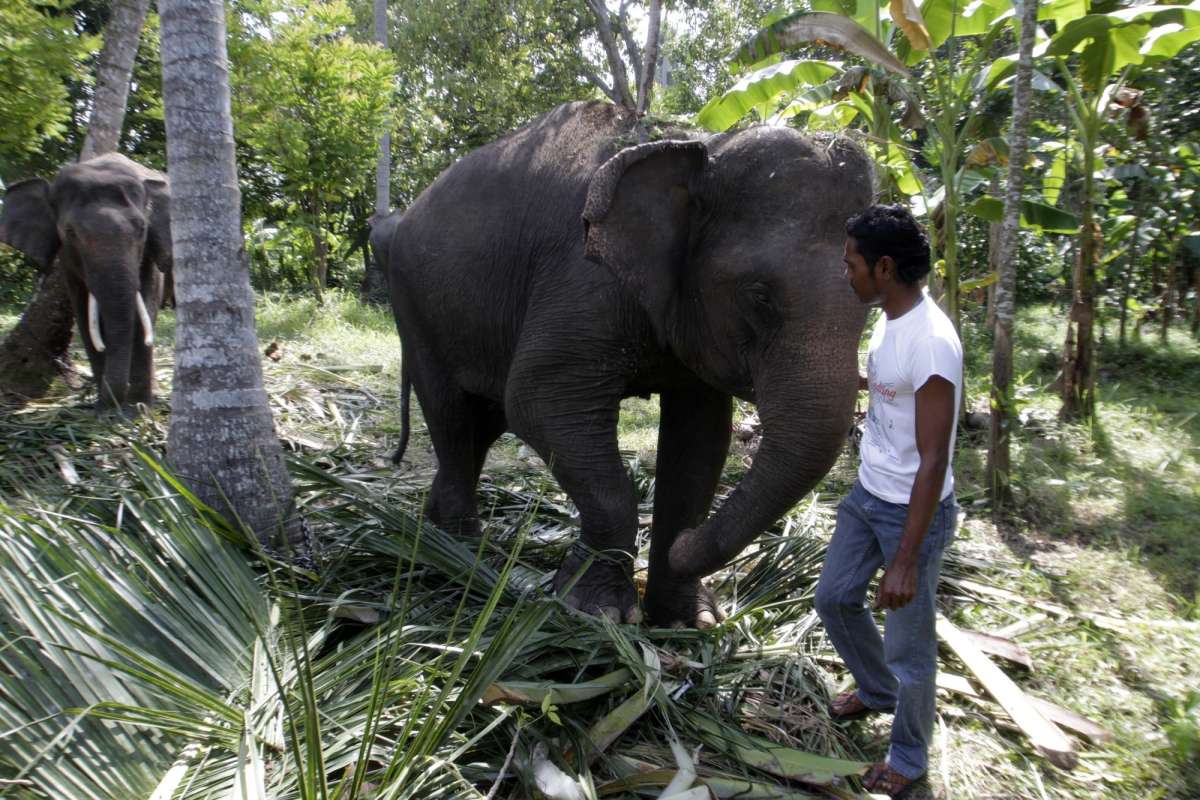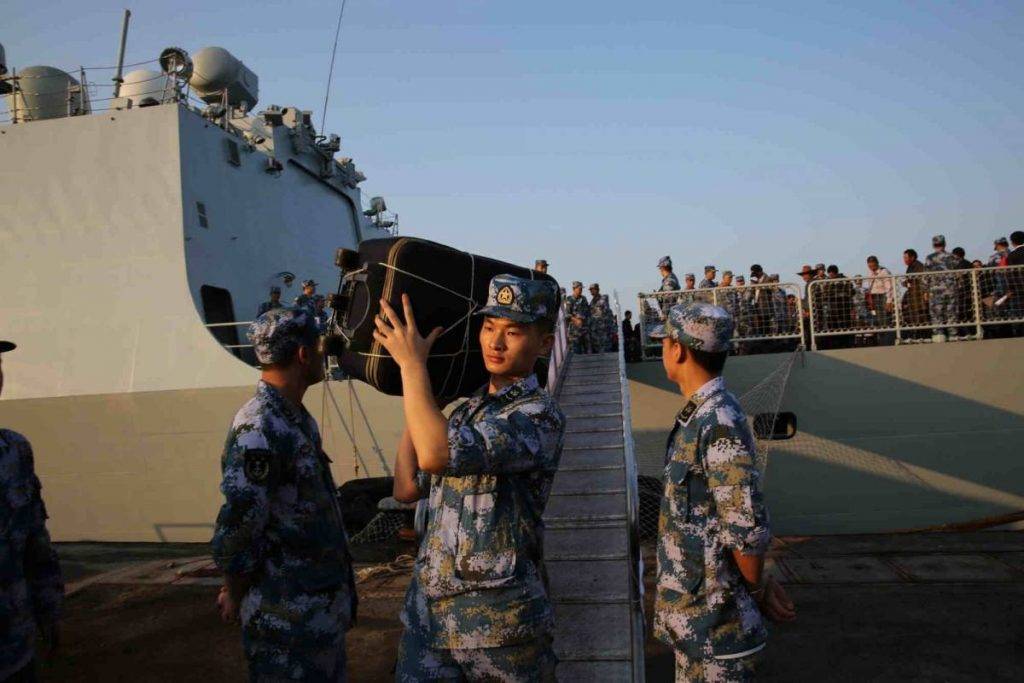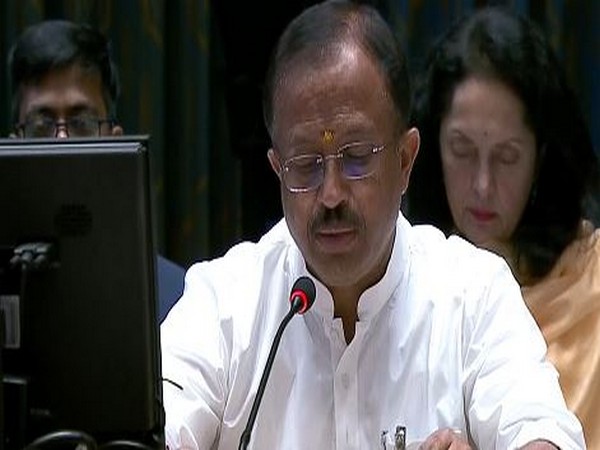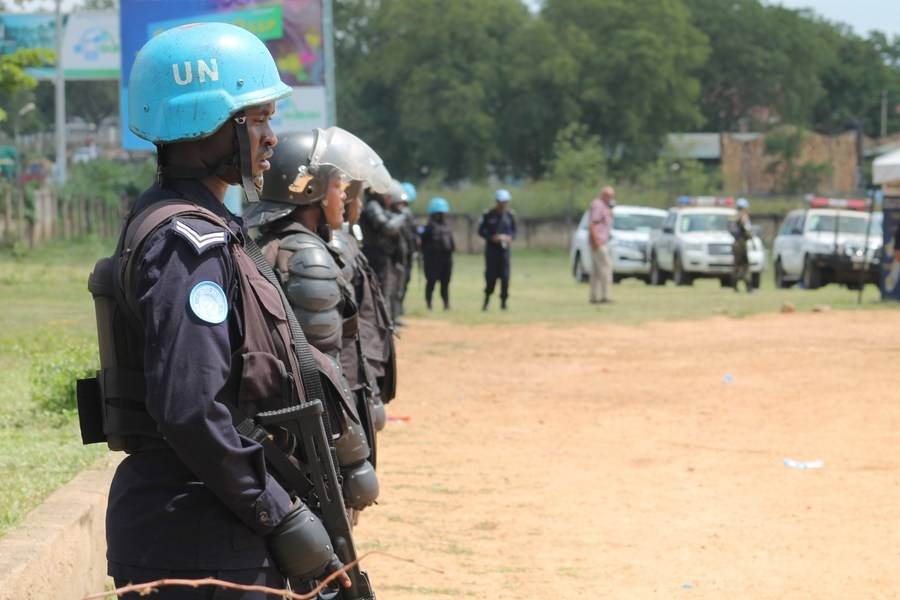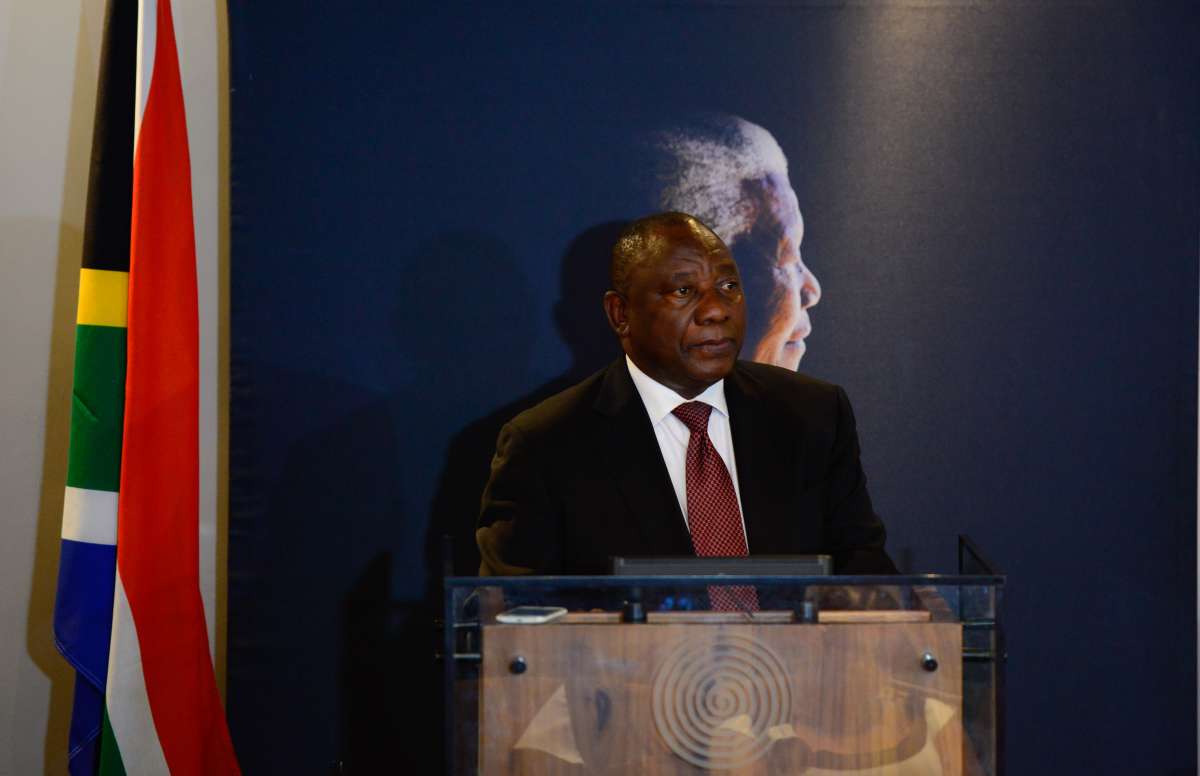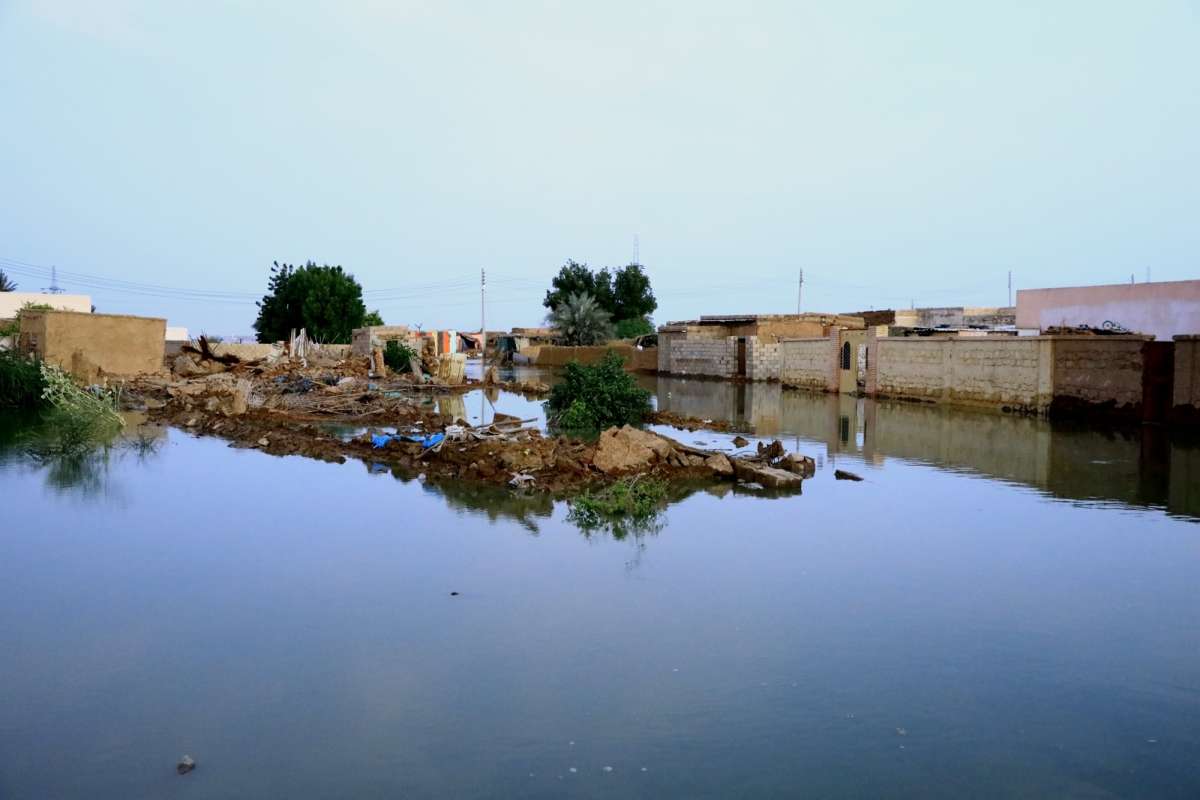The Minister said that preventing these inimical outfits from accessing financial resources, therefore, is “crucial to effectively counter their violent attacks.”…reports Asian Lite News
Highlighting that a violence-free Africa is necessary to prevent external forces including terrorists exploiting resource-rich region, MoS V. Muraleedharan said that those “guilty of aiding and supporting terrorism” in different parts of Africa and simultaneously exploiting the resources must be held accountable by the international community.
Minister of State for External Affairs V. Muraleedharan made these remarks during a UNSC debate titled “Peace and Security in Africa: Strengthening the fight against the financing of armed groups and terrorists through the illicit trafficking of natural resources.”
In recent years, MoS said, terrorist and armed groups have been making deep inroads by exploiting security gaps and fragile governance institutions in the continent, particularly in the Horn of Africa, Sahel and East and Central Africa.
He highlighted that the terrorist groups are accentuating their funding by exploiting the resource-rich region. “These regions have remained vulnerable to money laundering and terrorist financing. Terrorist and armed groups are increasingly funding their activities through illegal exploitation of natural resources and trafficking of wildlife, and extortion, etc., amongst other well-known activities.”
Pointing out the new ways used by the terrorist groups, MoS added that these outfits are financing their activities by exploiting the rapid development of information and communication technology as well as other technologies related to financial transactions, encryption, and varied modes of transportation and delivery.
The Minister said that preventing these inimical outfits from accessing financial resources, therefore, is “crucial to effectively counter their violent attacks.”
MoS pointed out that while some states lack the legal-operational frameworks and necessary counter-financing of terrorism capacities, there are other states that are “clearly guilty of aiding and supporting terrorism”, and “wilfully” providing financial assistance and safe havens to terrorists.
Calling out to enhance capacities of counter-financing of terrorism, MoS said that the international community must collectively call out those guilty of aiding terrorism and “hold them accountable to such double speak.”
“The global fight against terrorism cannot succeed without conscious and coordinated efforts to counter financing of terrorism; and nor can the global fight against armed groups.
Flagging key aspects for Council’s consideration, MoS said, first up, there is a need to recognize the fact that terrorism, like armed conflicts, is expanding in Africa.
“Al-Qaida and ISIL affiliated terrorist groups in different parts of Africa have gathered significant strength in the recent years, thriving on the illegal mining of artisan gold, rare minerals, gemstones, uranium, coal, timber etc. through illegal trade networks facilitated by transnational criminal networks.”
“Terrorist groups such as Al-Shabaab have put in place elaborate revenue collection networks, to support their terrorist activities. If left unaddressed, terrorism may seriously jeopardize peace prospects in several parts of Africa, which is already ravaged by armed conflicts,” he added.
Second, he said, ISIL and Al-Qaeda linked and inspired groups in Africa are embedding themselves in multiple domestic conflicts, attempting to influence and control the political agenda.
“Engaging them in national reconciliation will only provide legitimacy to terrorism as well give them access to necessary financial means and resources. This will be a self-defeating goal. What we need is a zero-tolerance policy towards all forms of terrorism, irrespective of its motivations,” Muraleedharan said.
Thirdly, MoS said that regional and sub-regional measures need to be strengthened further in line with the standards prescribed by the Financial Action Task Force (FATF).
“The African Union (AU), the Economic Community of West African States (ECOWAS) and the States of the Central African Economic and Monetary Community (CEMAC) have been playing an important role in combating financing of terrorism. “The initiatives such as the Intergovernmental Action Group against Money Laundering in West Africa; regulations against money-laundering and terrorist financing of CEMAC have helped in creating institutional frameworks in the African states.”
MoS said the fourth key aspect is that it is important that Member States, including African States, bring their anti-money laundering and terror financing monitoring frameworks at par with international standards, including those promoted by FATF.
“We also believe more cooperation between the FATF and the various UN entities, including the United Nations Office of Counter-Terrorism (UNOCT) will benefit Member States.”
He upheld FATF saying that the watchdog has been promoting effective implementation of legal, regulatory and operational measures for combating money laundering, terrorist financing and other related threats to the integrity of the international financial system.
MoS said that the international community needs to enhance assistance to African countries to strengthen their capacities to fight the illegal exploitation of natural resources and trade.
“Furthermore, a violence-free Africa would need to be freed from the shackles of external forces driving the exploitation of natural resources in Africa.”
In this regard, the Minister said India has been calling for a development paradigm that is Africa-led and Africa-owned and centred on the progress and development of the people of Africa.
“India has been contributing proactively to further international co-operation to combat financing of terrorism at regional and international level. In 2018, India contributed USD 550,000 to the UNOCT’s programmes targeting capacity building of countries in East and Southern Africa. In 2021 too, we have contributed one million dollars to further strengthen these efforts.”
He said that there is also a need to support national and regional security initiatives as well as capacity-building efforts towards effective border surveillance and security.
“African security initiatives such as Multinational Joint Task Force (MNJTF), South African Development Community Mission in Mozambique (SAMIM), and African Union Transition Mission in Somalia (ATMIS), have proven their success in countering terrorism.”
“These are Africa’s home-grown solutions, led by African countries who have a better understanding of their issues. The international community should provide sustainable and adequate financial and logistical support to such regional security initiatives.”
Lastly, he said concluding that the continuing lack of representation of Africa in the permanent category of the UN Security Council’s membership is an historical injustice that needs to be corrected sooner than later.
“Given that more than half of the Security Council’s work is focused on Africa, India has been consistently calling for greater representation of Africa, through an increase in both permanent and non- permanent categories of this Council’s membership, in line with the Ezulwini Consensus and the Sirte Declaration.”
He apprised the UNSC members that India has been at the forefront of the global fight against terrorism. As a country, he noted that India itself has been a “victim of state-sponsored cross-border terrorism” for nearly past three decades and thus is acutely aware of the socio-economic and human cost of terrorism.
“In 1996, long before the adoption of Resolution 1373, India took the initiative to pilot the draft Comprehensive Convention on International Terrorism with the objective of providing a comprehensive legal framework to combating terrorism. We have signed and ratified all the major conventions and protocols on terrorism adopted by the UN, and are part of all major global initiatives including FATF.”
As the Chair of the Counter-Terrorism Committee this year, India would be hosting its special meeting in Mumbai and New Delhi later this month on 28-29 October.
MoS reiterated the invitation to member states to participate in this upcoming meeting and hoped that it will contribute positively towards creating a global architecture, which is fit for purpose and effectively responds to the new tech tools deployed by terrorists and its backers, against open, diverse and pluralistic societies.
Muraleedharan congratulated Gabon with best wishes and greetings on its Presidency of the Security Council for this month. Gabon, central African country, officially took over as President of the UN Security Council for the month of October.
MoS stressed that the topic chosen for the debate is extremely important not just for Africa, but for all, in the context of global fight against terrorism. (ANI)
ALSO READ-US SC to consider African-American voting rights case


